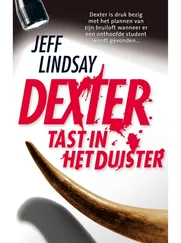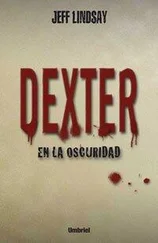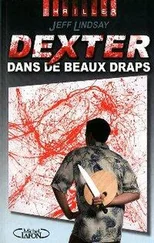Jeff Lindsay - Dexter's Final Cut
Здесь есть возможность читать онлайн «Jeff Lindsay - Dexter's Final Cut» весь текст электронной книги совершенно бесплатно (целиком полную версию без сокращений). В некоторых случаях можно слушать аудио, скачать через торрент в формате fb2 и присутствует краткое содержание. Год выпуска: 2013, ISBN: 2013, Издательство: Doubleday, Жанр: Триллер, на английском языке. Описание произведения, (предисловие) а так же отзывы посетителей доступны на портале библиотеки ЛибКат.
- Название:Dexter's Final Cut
- Автор:
- Издательство:Doubleday
- Жанр:
- Год:2013
- ISBN:1409144909
- Рейтинг книги:5 / 5. Голосов: 2
-
Избранное:Добавить в избранное
- Отзывы:
-
Ваша оценка:
- 100
- 1
- 2
- 3
- 4
- 5
Dexter's Final Cut: краткое содержание, описание и аннотация
Предлагаем к чтению аннотацию, описание, краткое содержание или предисловие (зависит от того, что написал сам автор книги «Dexter's Final Cut»). Если вы не нашли необходимую информацию о книге — напишите в комментариях, мы постараемся отыскать её.
Dexter's Final Cut — читать онлайн бесплатно полную книгу (весь текст) целиком
Ниже представлен текст книги, разбитый по страницам. Система сохранения места последней прочитанной страницы, позволяет с удобством читать онлайн бесплатно книгу «Dexter's Final Cut», без необходимости каждый раз заново искать на чём Вы остановились. Поставьте закладку, и сможете в любой момент перейти на страницу, на которой закончили чтение.
Интервал:
Закладка:
On to the second tent, which is quiet and unoccupied, and then deeper into the shadow under the bridge, and seeing the day turn even three small shades darker makes us breathe a little easier; it is far from night, but it is moving in the right direction, and we move with it, staying in the shadows and easing slowly along the water’s edge, stopping twice more for our dumb show with the water and the clipboard.
We are in the heart of it now and we pause, looking around at the otherworldly sprawl of the camp. There are lean-tos made of cardboard, and some made of wood with tin roofs, and others no more than sheets of plastic stretched tight to make a tent, and a few actual tents, all mixed together as if they had been scooped up at random and then tumbled out carelessly onto the concrete under the bridge.
At my right, the concrete slopes upward to meet the surface of the road, and nestled into the junction where road and concrete meet, a woman stares down at me from a sleeping bag, lifeless eyes following me without any interest at all. We stroll on through the camp, looking for anything at all that might speak the name of our speed date, Patrick, and finally, on the far edge of the camp, right at the water’s edge, we find it.
It is a very nice-looking dome tent, somewhat battered and stained, but still quite clearly a serious, good-quality piece of outdoorsman’s equipment. There is no red motorcycle parked beside it, and no sign of Patrick himself, but we are just as sure as we can be that this is his tent, because he has decorated it as only Patrick could.
On each side of the zippered flap that serves as the tent’s only door, there is a one-gallon milk jug, the same kind used by the hairless weight lifter. These, too, are filled with water, to hold them steadily in place as they support their top-heavy burden.
A stick has been jammed into the mouth of each jug, and on top of each stick is a cat’s head.
The heads have been very neatly cut from the bodies, and they look to be freshly dead, and they stare out at us with identical expressions of openmouthed kitty horror.
Between them, propped against the tent’s door flap, is a crude hand-lettered sign. It says, THIS CUD HAPPIN 2 U, and underneath in smaller letters, STAY OUT!
The combination of poor spelling and neat cat butchery is as telling as a photograph; this is Patrick’s tent. And we feel at last the chill all-ready steady-handed glee of impending wickedness and almost see the light around us creep slowly down the spectrum past the wretched bright yellow of noon and deep into the orange, and red, and-
But red. But wait; where is the red motorcycle? We see it nowhere and we know he would keep it close-even a hillbilly like Patrick would know he could not leave it unguarded near the road.
We look around; there is no place visible where a bike could be stored, and the happy shadows bleach away from us and back into daytime dinginess. There is no motorcycle-unless it was in the tent? But it is a small tent, and the warning sign was leaning against the tent’s flap in a way that indicated he had placed it there from the outside, probably as he left, and there are no small flaps or wrinkles across the canvas to tell of movement, not even a small and sleepy breath, and we watch another fat bead of sweat roll off our nose as we come crashing back to daylight and disappointment.
Patrick is not here.
In the middle of the day, in our only small window of opportunity, Patrick has wandered away where he should not be. He has spoiled everything.
We fight down the ornery urge to give the tent a spiteful kick, and just to be completely safely thorough we move past the tent to the water, listening very carefully for any soft snoring or rumbling from inside the tent. There is nothing, no sound, and we are thinking very unhappy thoughts as we kneel down and perform our watery pantomime one more time.
Just to be very sure, we stand up and turn too fast, pretending to stumble, and giving the tent a hearty “accidental” thump. There is no response from inside.
“Sorry!” we say in a loud official voice, and we wait for an answer. “Hello? Anybody home?” Again there is no response.
It is definite. Patrick is not here.
And although we loiter for another twenty minutes, performing meaningless tricks with the clipboard, he does not return, and we finally have to admit that staying any longer would be highly suspicious, and we must pack up our toys and admit the painful obvious truth:
We have crapped out.
We thread our way back through the camp, pausing twice to scribble bad words on the clipboard, and then climb back up onto the causeway and trudge to the car in a weary, bitter, very unhappy sheen of sweat. We try very hard to think positive thoughts, to come up with some small scrap of something that will make this whole hopeless trip seem like anything other than a complete waste of time. And finally, as we thread our way through the traffic at the end of the causeway, one tiny glimmer of optimism leaks through all the cranky sludge, and we sigh and accept it as the very best we can hope for:
At least there is now time for lunch.
I had a quick lunch alone in a restaurant on Calle Ocho, a new place that had opened so recently that the waitress was still polite. The food was good. I topped it off with a cafecita and then drove slowly and thoughtfully back to the office. I wondered where Patrick had gone. He knew he could not get to Jackie in daylight. If he was keeping the schedule I thought he was, this was his sleeping time, and he should have been lounging there in his tent in peaceful repose. Of course, it was possible that he had run out of buffalo jerky and gone to a convenience store to get more. But after all my preparation, and my endless dithering about doing it quickly and in daylight, it was oddly deflating to come away from the afternoon with nothing to show for it except a small spot on my shirt from some spilled black beans.
Now I would have to sit around for another hour with Robert and Renny and pretend to be mild and patient-and then I would still have to go down to the meeting with Cody’s teacher. That conference had seemed like a good idea when it was my excuse for slipping away, and my alibi. Now it began to seem like a great deal of dull niggling scut work, pointless and annoying posturing with an elementary school teacher, someone who could never understand Cody nor his difficulty in adjusting. The teacher would want to discuss ways to help Cody make a happy accommodation to his new grade, and strategies for success in fitting in, and the teacher could not hear the truth, would not believe it even if I spoke in plain one-syllable rhyming words accompanied by bright crayon-colored illustrations. No teacher in any school in the Dade County public school system could ever understand the simple unvarnished truth.
Cody would never adjust, never be happy, and never fit in.
Cody was not, and never would be, a normal healthy boy who wanted to play ball and tease the girls. Cody wanted other things that the school system could never give him, and his only chance of being well adjusted was to learn how to get them, and how to pretend to be human, how to live by the Harry Code-and all those things he had to learn from another monster: me.
The things Cody wanted, needed , are frowned upon by the intolerant society in which we live, and we could never explain it, not any part of it, not at all. And so we would sit with the teacher and dither and dance and exchange fake smiles and grandiose clichés and pretend to feel hope for a bright and shiny future for a boy who would unstoppably grow into a Dark Legacy already written in blood instead of chalk. And thinking about how I must unavoidably avoid this truth with the teacher and instead spend forty-five minutes mouthing cheerful brainless New Age buzzwords with someone who Really Cared made me want to ram my car into the Buick filled with blue-haired ladies from Minnesota that chugged along on the road beside me.
Читать дальшеИнтервал:
Закладка:
Похожие книги на «Dexter's Final Cut»
Представляем Вашему вниманию похожие книги на «Dexter's Final Cut» списком для выбора. Мы отобрали схожую по названию и смыслу литературу в надежде предоставить читателям больше вариантов отыскать новые, интересные, ещё непрочитанные произведения.
Обсуждение, отзывы о книге «Dexter's Final Cut» и просто собственные мнения читателей. Оставьте ваши комментарии, напишите, что Вы думаете о произведении, его смысле или главных героях. Укажите что конкретно понравилось, а что нет, и почему Вы так считаете.












